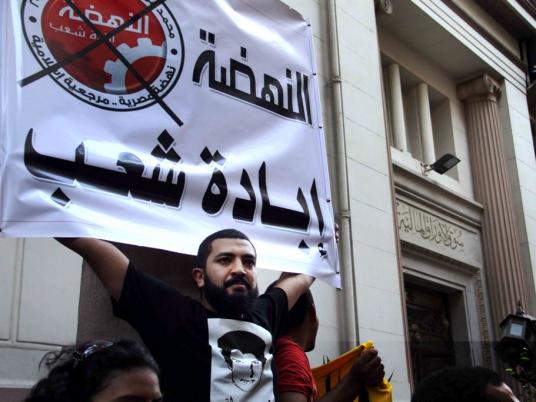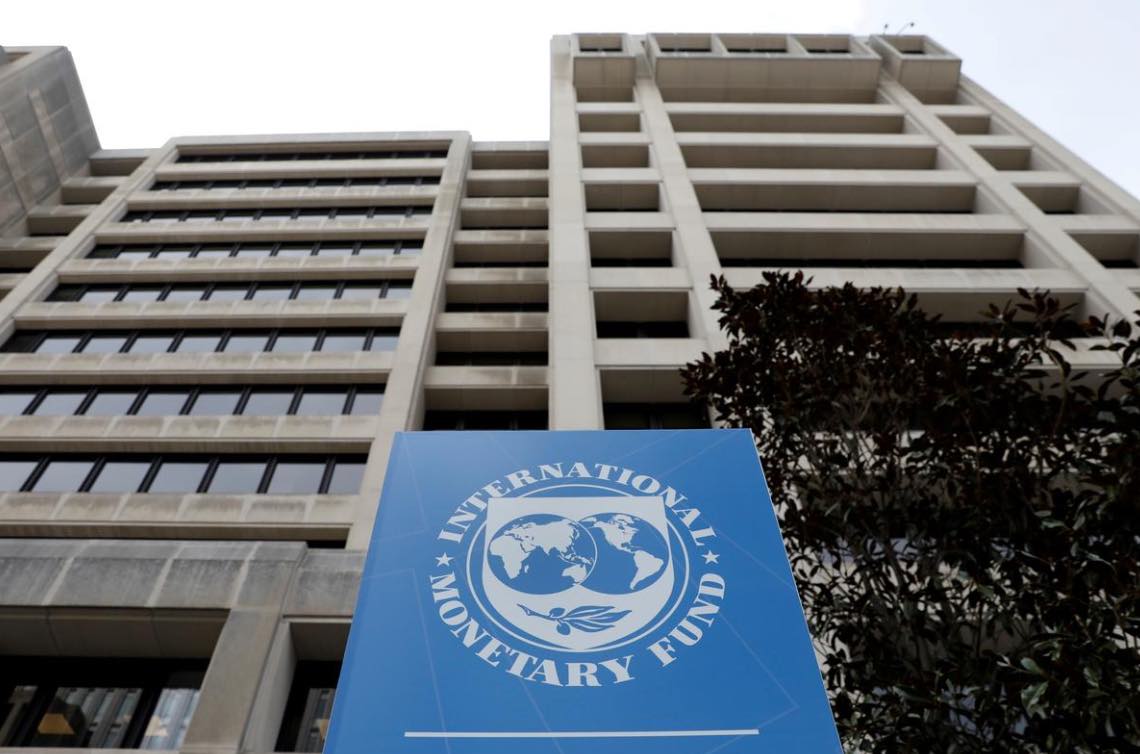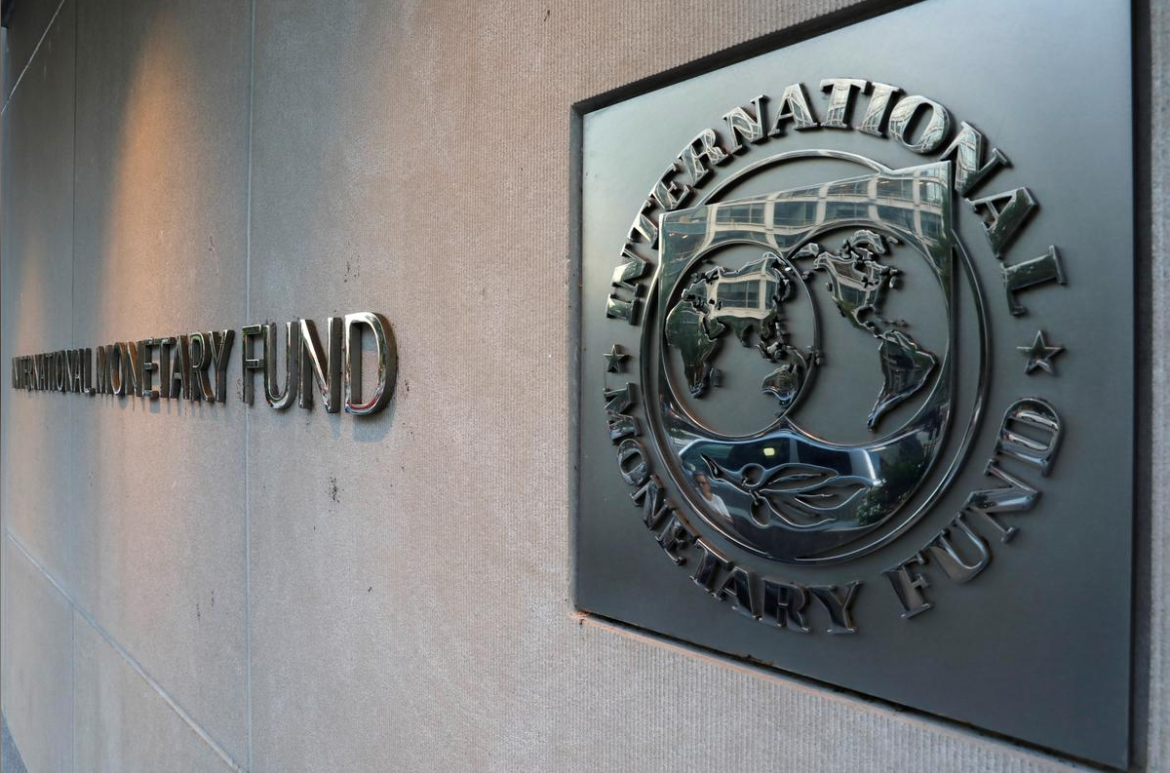
The details of a 10-year economic reform plan that officials say aims to make Egypt “a free and democratic civil state,” in which “all citizens enjoy human dignity,” were released by the Cabinet on Wednesday.
The 11-page plan had been approved by the International Monetary Fund delegation earlier this month in the course of negotiations over a US$4.8 billion loan.
The main component of the plan, made available on the web portal of state-run Al-Ahram newspaper, is a reduction of the government’s budget deficit through cuts to fuel subsidies and revisions to the current tax structure.
The reform plan targets a budget deficit for this fiscal year at 10.4 percent of the GDP, down from last year’s 10.9 percent of GDP. The plan claims the budget deficit would shrink to 8.5 percent of GDP by the end of the fiscal end of 2013/2014, and to 5 percent of GDP by the end of 2016/2017.
As of the end of November, Egypt’s total budget deficit currently stood at approximately LE69.6 billion, or about 3.9 percent of the country’s GDP according to a Finance Ministry Report. The Cabinet’s goal is to limit spending for the rest of this fiscal year to keep the deficit at the goal figure of 10.4 percent.
The current deficit is markedly greater than it was at the same period last year, when the total state budget deficit was LE47.2 billion, making it unclear whether Morsy’s government will be able to keep spending low enough to make the reform program’s target for this year.
Fuel subsidies and electricity
These spending cuts would include lifting fuel subsidies on heavy industry — such as cement and copper factories — by 33 percent, and on light-use industry such as porcelain factories by 30 percent. The plan also stipulates raising electricity prices for the factories.
The government has already begun a coupon system for the distribution of butane canisters in some areas, according to the document, which is intended to prevent price gouging and make sure the canisters go to those who need them.
Butane is commonly used for heating and cooking in low-income areas.
The document also lauded the lifting on 21 November of a subsidy on 95-octane gasoline, typically used in luxury and sports cars, as another step towards reigning in spending.
By April 2013, the plan said, Egyptians would be using an electronic “smart card” system to receive subsidized gasoline and diesel fuel.
Modes of public and mass transportation would keep paying the subsidized price, including buses, microbuses, and taxis. Tourist, diplomatic and private company transport would not be exempt.
The use of diesel fuel in farming and irrigation equipment would also remain subsidized.
In the reform plan, government officials also promised to solve “the financial entanglements between the petroleum and electricity sector,” which led to power outages across the country this summer when power stations ran out of fuel.
Officials said that they would provide power stations with enough natural gas to operate so that they would no longer need to burn the lower-quality and more environmentally harmful mazut oil.
According to the reforms, the government would also continue to subsidize home electricity usage up to 50 kilowatt hours, which should cover the usage of 70 percent of all citizens.
Taxes and social programs
The document emphasizes the program’s focus on spending cuts while maintaining a societal safety net for the poor, which, it says, does justice to the revolution “which the great people of Egypt started and which was watched by the world to overthrow dictatorial rule.”
Ten percent of all savings from spending cuts would be redirected to social and safety-net programs for the poor.
The social programs that were laid out in this year’s budget are “strict and without compromise,” according to the document.
By the end of the 2012/2013 fiscal year, there would be 1.5 million people receiving a government pension for the very poor, which would increase to 2 million by the end of 2013/2014.
In addition, the government would help sponsor programs linking young people to jobs in the private sector, and implement financial help for the poor to buy medicine and obtain healthcare.
The government would also increase the budget for healthcare by 18.5 percent, the education allotment by 28 percent and the housing budget by 4.5 percent.
The plan suggests that companies be taxed 25 percent across the board on any profits, as opposed to the current system with varying private company taxes, the lowest of which is 25 percent.
The requirements for an individual to be exempt from paying taxes would also be changed, with those at the lower end of the tax bracket no longer able to skip out on paying taxes.
Those with yearly incomes greater than LE1 million would be required to pay 25 percent taxes, and the brackets above them would also see higher rates of taxation.
The government would also change the current sales tax to a value-added tax, which would place a greater burden of the tax on the consumer but not shops and producers.
For the first time in the stock market’s history, the Egyptian government would levy a capital gains tax on investors that would include profits resulting from company mergers and acquisitions.
Smokers would also see an increase in taxes on cigarette purchases, according the reform, which plans on making Egypt’s cigarette tax equivalent to most international rates.
Lastly, some mass-produced drinks would also be taxed under the new plan.
Regulating currency
According to the reform package, the Egyptian Central Bank would continue to manage the currency, targeting the optimum exchange rate to both encourage investment but not stoke inflationary pressures.
"The Central Bank will continue to target a currency value that will encourage investment and economic growth, but that will prevent a systematic rise in prices," the plan said.
It also announced the founding of a council that can study causes for rising prices, particularly in foodstuffs.
Many experts believe that the pound will depreciate in the coming period, as the country struggles to address its budget deficit and unrest continues to plague the streets.
Nothing new?
For all of its rhetoric about building the country’s economy based on the revolutionary call for “social justice,” Reda Issa, an independent economic analyst and member of the Popular Campaign for Dropping Egypt’s Debts, sees nothing new in the government’s economic reform program.
In March, the Egyptian Initiative for Personal Rights published a statement from the campaign that criticized former Prime Minister Kamal al-Ganzouri’s economic reform plan because it “valued reducing the budget deficit over promoting social justice.”
Issa sees no difference in the current plan.
“[Prime Minister] Hesham Qandil’s program presented to the IMF is laughable,” he says. “It’s the exact same as Mubarak’s economic policies and it’s the same one presented by the Ganzouri Cabinet.”
He says it does not embody social justice, as it imposes an indirect increase in tax on consumers and employees, but a comparably insignificant hike for businesses.
Like the previous policies of former President Hosni Mubarak, the government continues to value investors with deep pockets over the average citizen, Issa argues.
“I compared it with the 2008 program under Mubarak and it’s the exact same,” he says.
He claims the reforms will only beget more social problems, and relegate social justice to the area of NGOs, not the government.
“We’re dealing with poverty alleviation through charity and donations, not real policies,” he says.
But in the current climate of unrest, it’s unclear how the reforms will be accepted.
A forthcoming World Bank report titled "Inclusion and Resilience: The Way Forward for Social Safety Nets in the Middle East and North Africa," found that the vast majority of adults in the Middle East and North Africa, including in Egypt, believe their government bears the primary responsibility of providing for the poor, but find the current social safety net policies to be largely ineffective.



